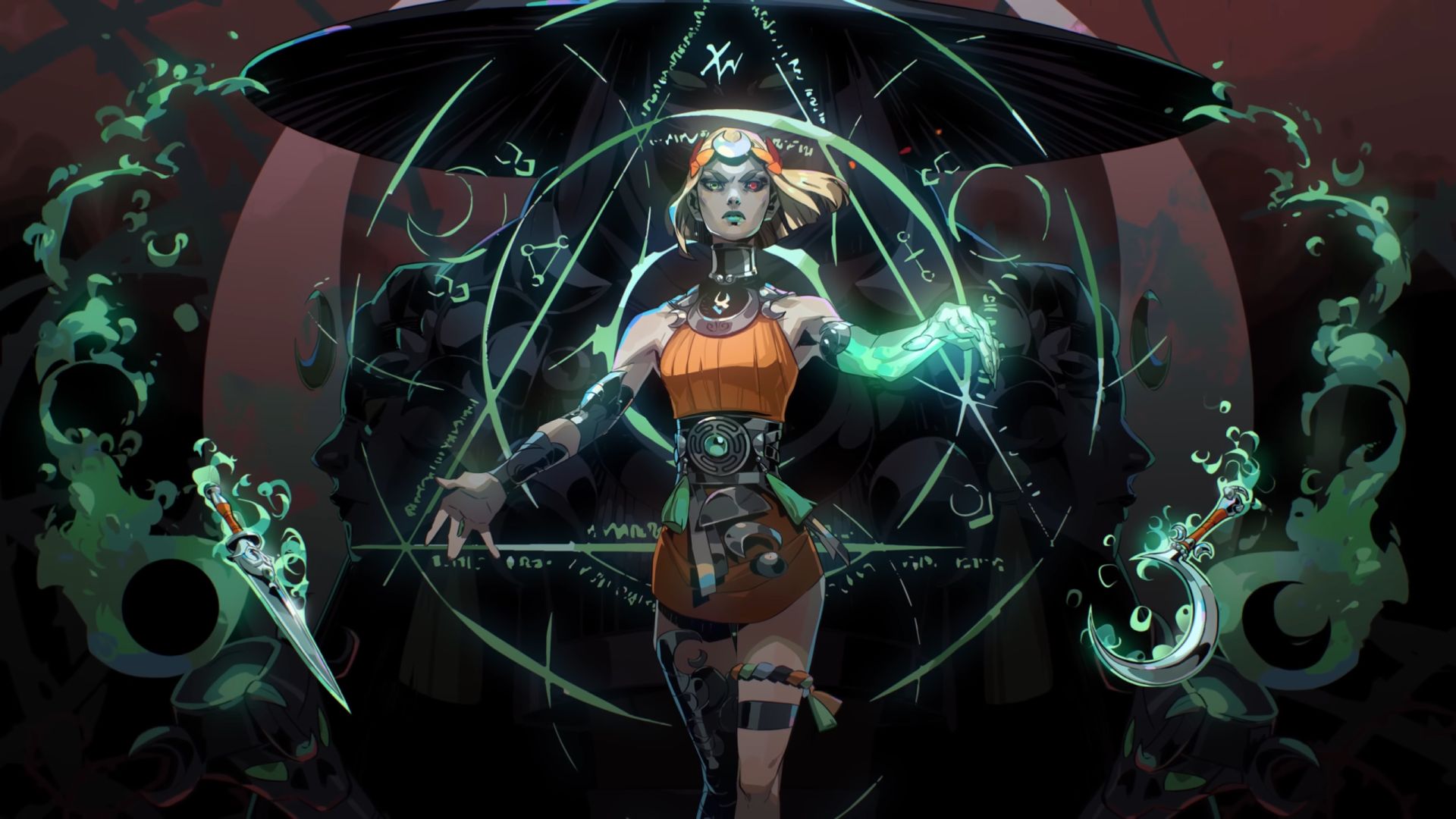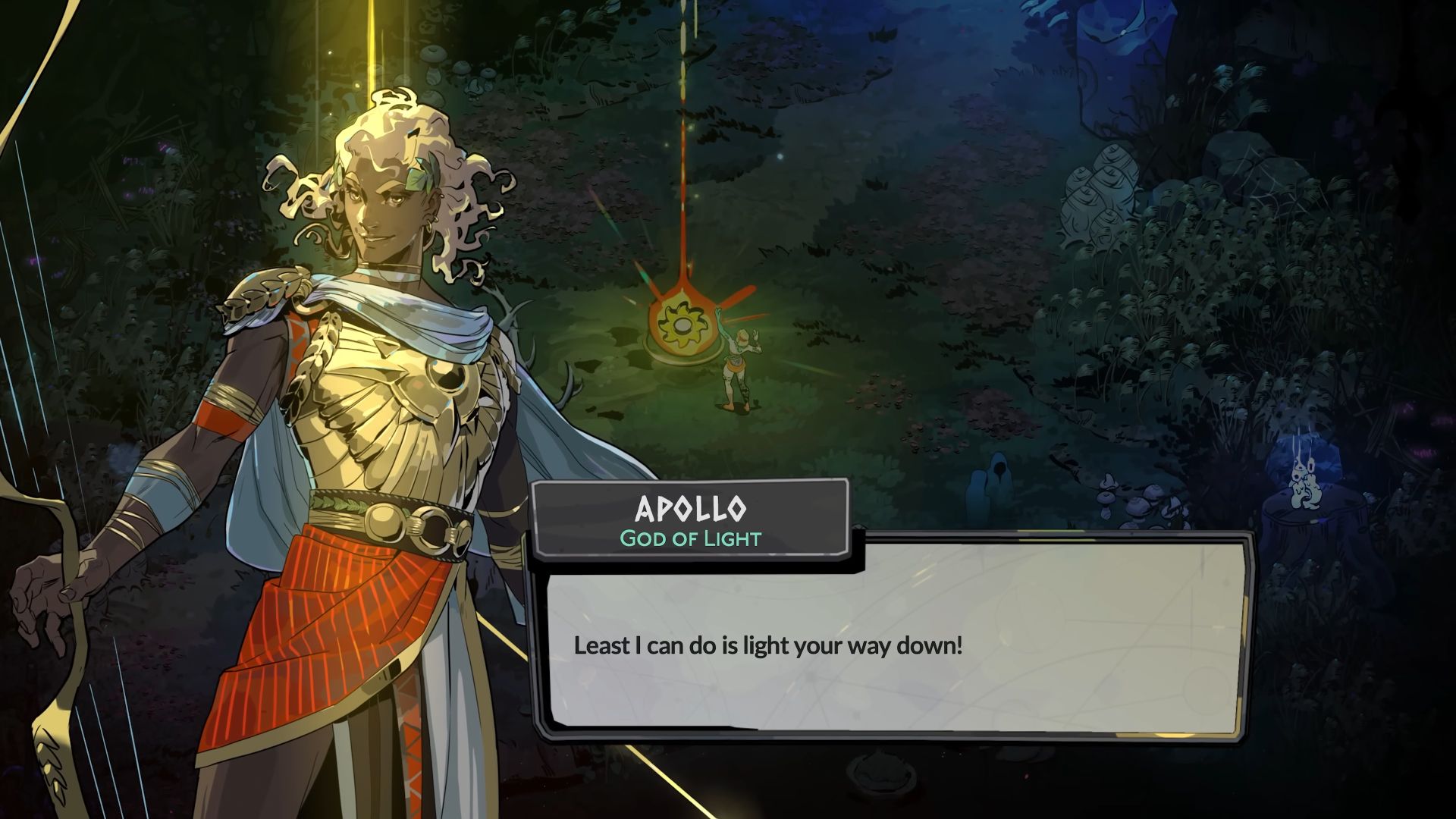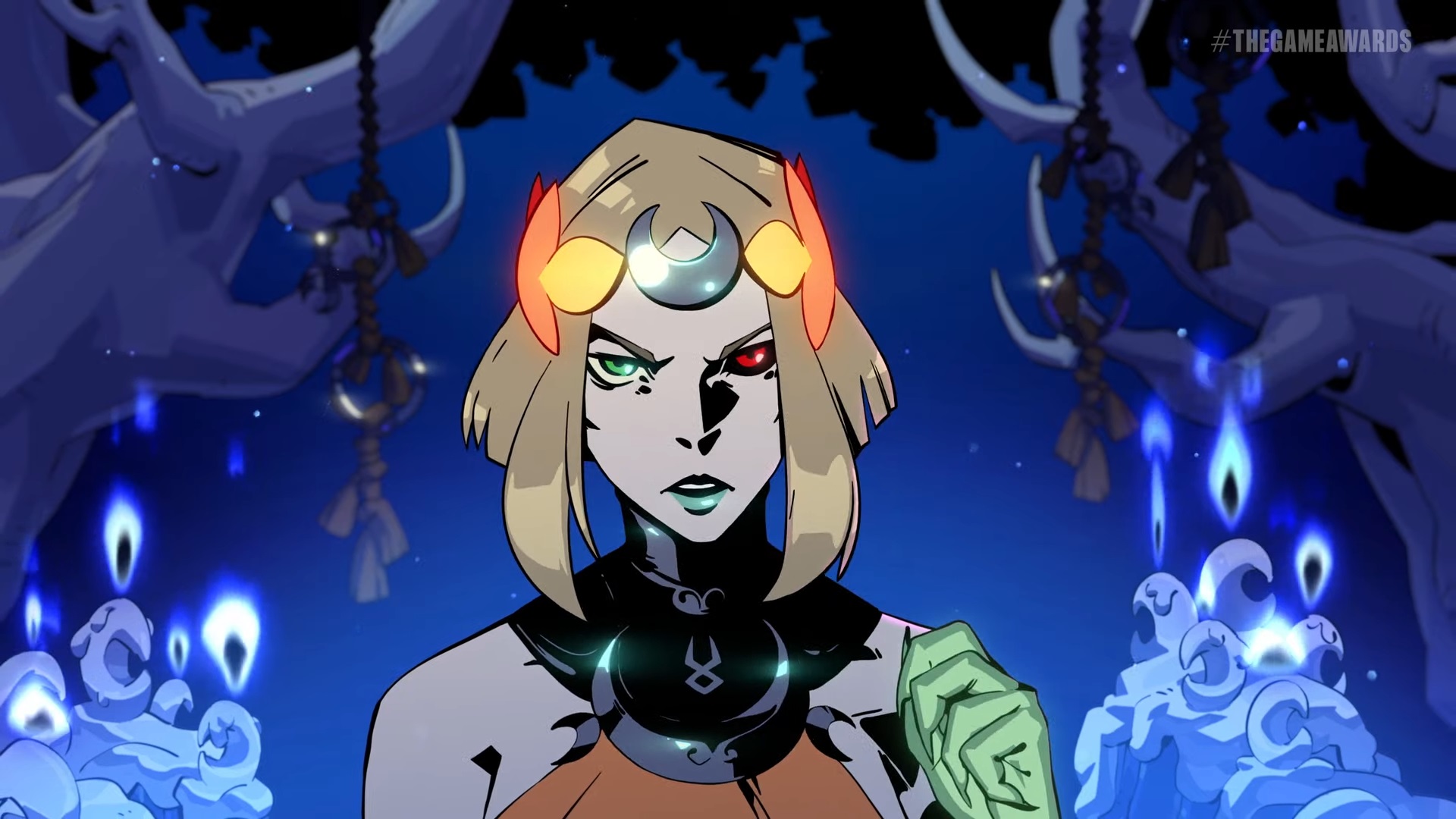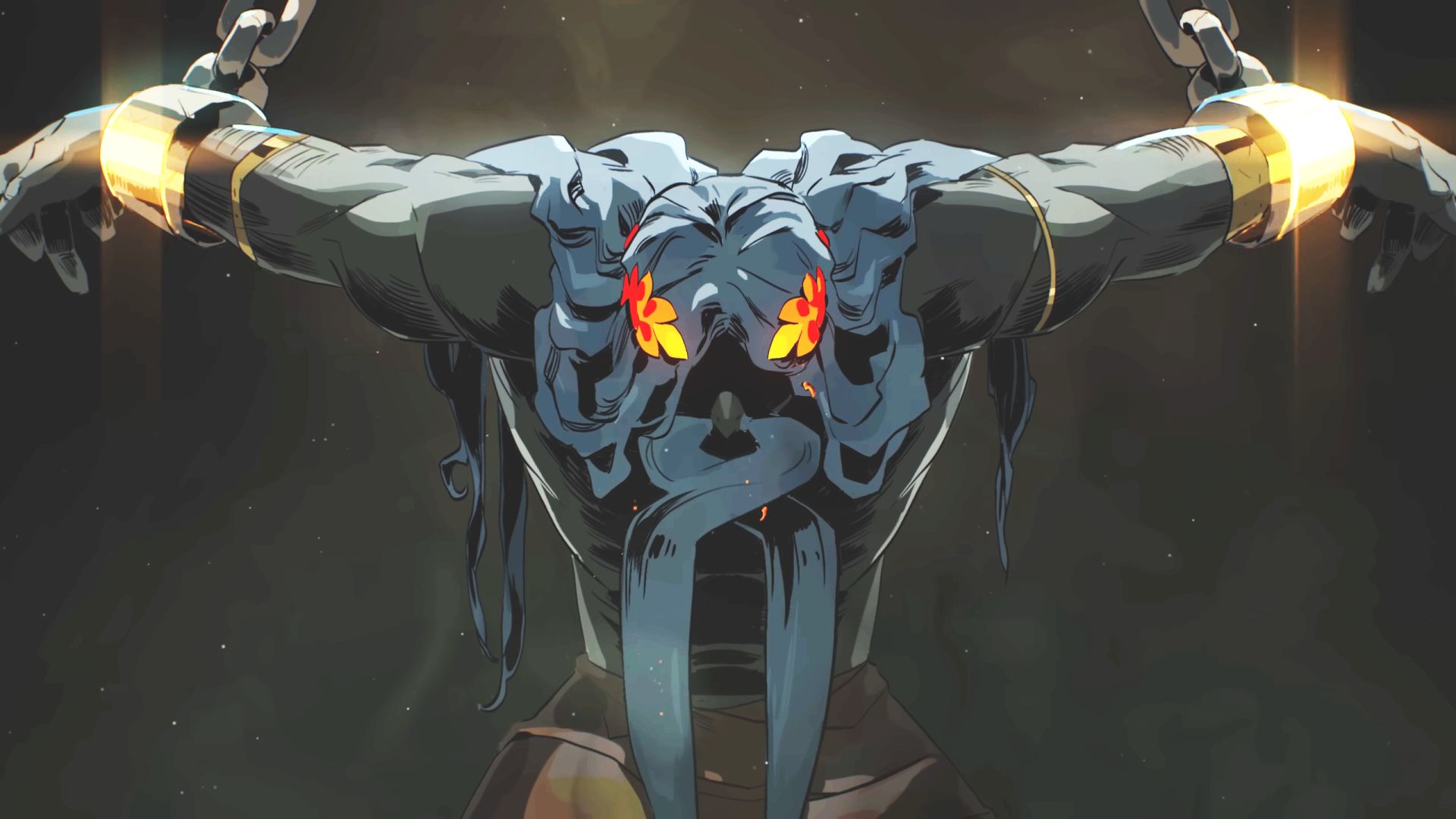What mythical poems and dead gods could tell us about the story of Hades 2
From Apollo to Kronos, Supergiant continues its dive into the depths of Greek myth

The reveal of Hades 2 at The Game Awards left viewers excited for another trip down into the Underworld – and curious about what that could mean for the Greek mythology inspired setting. Hades 1 skilfully interpreted existing stories to fit its purposes, creating a story about perseverance, family, and the meaning of freedom. By looking at the myths that Hades 2 seems to be drawing from, we can get some clues about how it might do the same.
Although she wasn’t named in the trailer, Supergiant revealed that our new protagonist is Melinoë. Most of what we know about Melinoë comes from a brief hymn which reveals her as the daughter of Persephone. The hymn also refers to her “partly black…and partly white” limbs, in case you were wondering about her ghostly arm, and she is said to inspire fear and madness in mortals. But, like Zagreus, not much of her mythology survives into the present day, giving Supergiant room to work with when creating their own take.
Still, another similarity between Mel and Zag is their connection to Orphism, a loosely defined branch of Greek mythology that centres on texts supposedly written by the legendary poet-hero Orpheus. You might remember him from the original Hades – the sad lyre master who haunts the halls of the dead after losing his love, Eurydice.
Much of Orphism has a focus on the ancient Greek idea of the 'katabasis' - or journey to and return from the Underworld. Orpheus famously achieved this feat in his failed attempt to rescue Eurydice from her untimely death. In an interesting reversal of Zagreus' attempts to escape from Hades in the first game, Melinoë seems to be attempting her own katabasis, one hint that Hades 2 seems to be leaning more into its Orphic roots.
The gift of prophecy


And that's not the only hint. Many people wondered why Apollo never appeared in Hades 1, despite being a well-known Greek god and even the twin brother of Artemis, who does make an appearance. Given that Supergiant says it's been working on Hades 2 since 2021, and we now know Apollo will be in this game, it seems as though they’ve been saving him for this specifically.
Apollo and Orpheus have strong connections. In some versions of the myth, Apollo is Orpheus’s father. In many, he gave Orpheus his first lyre. In one play, Orpheus only worshipped Apollo and was killed for not honouring the other gods. In another telling, perhaps particularly relevant here, it was Apollo who petitioned Hades to give Orpheus a chance to save his wife from the underworld.
In short, the appearance of Apollo in the sequel is another good indication that Hades 2 will be drawing on Orphism specifically, among the rest of its mythological inspirations. But don’t forget that Zagreus has strong connections with Orphic traditions, too. By peeking into them, we might be able to make some guesses about what he’ll be up to in the sequel – and possibly even why he didn’t show up in the trailer.
Sign up to the GamesRadar+ Newsletter
Weekly digests, tales from the communities you love, and more
Just like we saw with Apollo, it's important to remember that there’s no unified story of the Greek gods. What we have instead are sometimes conflicting fragments that were written at different times and give different perspectives. One of these conflicts is even lampshaded in Hades: the overlap between Dionysus and Zagreus. Generally, historians see Zagreus as an earlier god who later merged with Dionysus in the mythology. In Hades 1 the two characters come up with a plot to get Orpheus (him again!) to spread a story about them being connected, in a deliberate nod to this part of history.

"Alternatively, Zagreus might not be in that trailer because, well, he’s dead."
But what are the stories of this Zagreus-Dionysus hybrid? One of the most important is also one of the central stories in Orphism: the death of Dionysus at the hands of the Titans. And while the Titans don’t appear in Hades, Kronos, the villain of Hades 2, is the Titan of Time. That connection could show up in multiple ways in Hades 2. For instance, in Hades, it was revealed that Persephone thought Zagreus died soon after he was born. Hades 2 could go further into exploring what actually happened and why she believed that. The Zagreus-Dionysus of the Orphic myth died in infancy, so it’s not much of a stretch. We also know that the Kronos of the game was imprisoned in the Underworld, and this just might be why.
Alternatively, Zagreus might not be in that trailer because, well, he’s dead. I don’t think Supergiant would go as far as actually killing him off for good, but it would be a great set up for a bait and switch, and would allow him to show up in the post game, handing out boons and dry witticisms, giving him importance in the sequel without taking over from Melinoë.
We can only speculate on what Supergiant might do with Kronos, Melinoë, and the rest of the cast. But given their attention to historical detail and their care in interpreting and giving their own spin to the Greek myths, paying attention to the source material might just bring us more clues while we wait.
In case you need reminding, Hades topped our list of the best games of 2020.
Jay Castello is a freelance writer with more than five years experience specialising in online culture and video game communities. Their work - which covers everything from fanfiction to Twitch streaming - has appeared at sites including The Verge, Polygon, and Fanbyte. They also co-host Turnabout Breakdown, a podcast dedicated to dissecting the entire Ace Attorney series.


